- Broken Heart/A Message To You Rudi (Direction 583814) 1967
- Rudi's In Love/Never Set Me Free (Parlophone R 5718) 1968 (25)
- Mr. Armageddan/There's Got To be A Way (Parlophone R 5758) 1969
- I'm Never Gonna Let You Go/You Must Be Joking (Parlophone R 5801) 1969
- Roll Over Mary/Movin' Down The Line (Parlophone R 5835) 1970
- We Are Everything You See (Parlophone PCS 7093) 1970
Locomotive
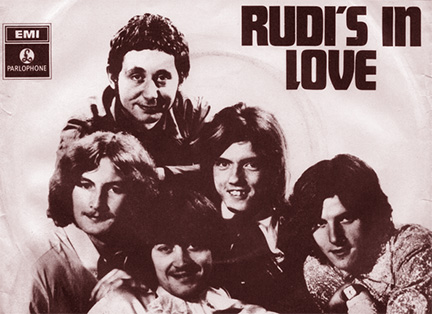
BIRMINGHAM
Updated January 2021
Pete Allen bass guitar (left in 1966)
Mike Kellie drums (left in 1966)
Danny King lead vocal (left in 1966)
Brian "Monk" Finch saxophone (left in 1966)
Jim Simpson trumpet (left in 1967)
Richard Storey saxophone, organ (left in 1966)
Chris Wood saxophone, flute (left in 1966)
Joe Ellis bass guitar (joined 1966 - left 1967)
Norman Haines lead vocal, keyboards (joined 1967, left 1970)
Bill Madge saxophone (joined 1966, left 1969)
"Mooney" Mazzone drums (joined 1966 - left 1967)
John Barry saxophone (joined 1966 - left 1967)
Mick Hincks bass guitar, vocal (joined in 1967)
Bob Lamb drums (joined in 1967)
Mike Taylor trumpet (joined 1968, left 1969)
John Caswell guitar, vocal (joined in 1970)
Keith Millar guitar, keyboard, vocal (joined in 1970)
Andy Hughes bass guitar
"Rudi's In Love"
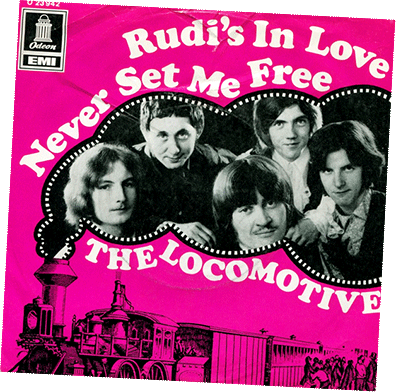
This Birmingham band included names who were well-known in the local music scene. Above all, it was keyboardist/vocalist Norman Haines who defined the most famous line-up of Locomotive. They were unusual in not having a guitarist but instead used horns and hammond organ for their distinctive sound. This talented group recorded some underrated records that continue to draw attention to this day.
The first Locomotive line-up was put together in 1965 by jazz musician Jim Simpson who also worked as a photographer for the Midland Beat newspaper. The band was to become something of a local "supergroup" as besides Jim on trumpet, the members included influential vocalist Danny King, saxophonists Bryan "Monk" Finch from Pat Wayne's Beachcombers, and Chris Wood from "Sounds Of Blue" (later to become Chicken Shack).
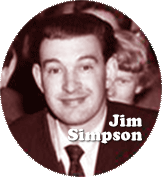
The initial line-up also had drummer Mike Kellie (from The Phantoms), organist Richard "Rick" Storey, and Pete Allen on bass guitar.
Chris Wood remembered; "We were playing what I then thought was jazz but now know was twelve-bar sequences on piano, bass and drums. We'd do the occasional wedding reception, social club, British Legion meeting on Saturdays. You'd have to play standard waltzes and foxtrots, but we tried to do as much jazz as we could get away with."
The band was first known as "The Kansas City Seven" but this was later considered too jazzy for a future chart act who were now including lots of blues and soul numbers into their show. The group gained recognition for their energetic live performances and soon had bookings for as far away as London where they played many times.
"We'd jam together with Jim Capaldi, Stevie Winwood, and Chris Wood"
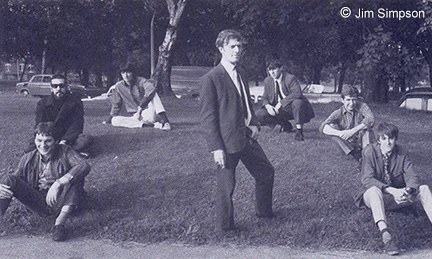
"The Elbow Room" club next door to the Hippodrome cinema in Aston high Street was a popular spot for Locomotive band members to meet up and take their turn on the small stage along with other local musicians. Mike Kellie said; "We were the 'Elbow Crowd'. We'd all jam together with pals like Jim Capaldi, Stevie Winwood, and Chris Wood who was by now with me in The Locomotive."
The line-up shown in the photo shows left to right; Chris Wood, Brian Finch, Mike Kellie, Danny King, Richard Storey, Jim Simpson, and Pete Allen.
1966 saw various personnel changes and by the end of the year, only Jim Simpson remained of the original line-up. Mike Kellie joined a Carlisle-based group called "Art" for a tour in Germany and they were later signed to Island Records, recording an acclaimed album before changing their name to "Spooky Tooth" who went on to much success.
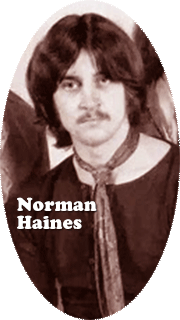
Chris Wood who left at the end of the year, joined up with Jim Capaldi, Steve Winwood and Dave Mason to form the internationally acclaimed "Traffic" (see Traffic).
In early 1967, talented keyboardist Norman Haines became part of the "new" Locomotive line-up which by now consisted of Jim Simpson (trumpet), Jo Ellis (bass), Bill Madge (saxophone) and drummer "Mooney" Mazzone. Norman Haines had started his music career as a member of The Brum Beats - not to be confused with the other Brumbeats who were led by singer Bobby Ash.
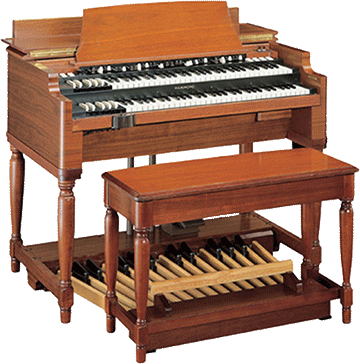
While running his own "Big Bear" agency, Jim Simpson had managed to get The Locomotive signed to a recording contract with the 'Immediate Records' label founded by former Rolling Stones manager Andrew Loog Oldham.
Having worked at a record shop in Smethwick (a part of Birmingham with a large West Indian population), Norman Haines developed an interest for the "Blue Beat" and "Ska" music popular in that area. His songwriting talent and Hammond organ was soon put to good use when the band recorded their first single A-side titled 'Broken Heart'.
Norman Haines remembered; "The good thing about Broken Heart was that it was the last record to be played on 'Jukebox Jury'. The bad thing was - they voted it a 'miss'. Katy Boyle said that this was one locomotive that should never have left the station!"
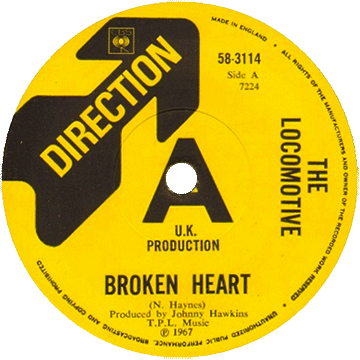
Although a brilliant composition coupled with Norman's soulful vocal and catchy horns, the record undeservedly didn't chart but the B-side 'A Message To You Rudy' was to later became a big hit for Coventry band "The Specials" in 1979.
Jim Simpson had left the Locomotive line-up by 1968 to concentrate on management and promotion. He would also go on to manage local bands Bakerloo Blues Line, Tea & Symphony and eventually Black Sabbath.
In addition to Norman Haines and Bill Madge, Locomotive by this time included bass guitarist Mick Hinks, drummer Bob Lamb, and trumpet player Mick Taylor.
"The dance floor filled immediately"
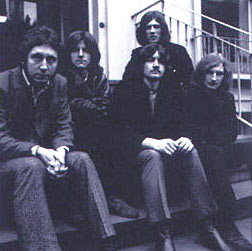
Jim Simpson went down to London and met with Tony Hall who was former head of Decca Records promotions department and now running his own agency. Upon listening to a demo tape by Locomotive, he was impressed. Jim invited Tony up to Birmingham where The Locomotive were playing a night at the popular "Cedar Club" on Constitution Hill.
While Tony Hall seemed to look increasingly bored as their set progressed, the band pulled out all the stops by playing rather complex numbers in an effort to impress him with their instrumental abilities. Eventually there was only five minutes left in their set before the disc jockey was due to take over the empty dance floor. In desperation, Norman Haines decided to pull out a barely rehearsed song he'd written.
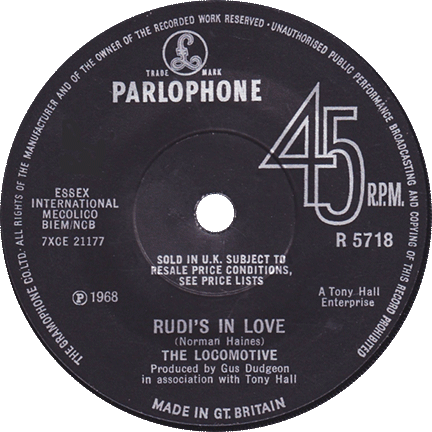
Norman Haines recalled; "All our songs met with total indifference. We were trying to be too clever. When we struck into the song at The Cedar that night, the dance floor filled immediately. On the chorus, the whole club was singing 'Rudi, Rudi's in love...'. When we came off, Jim Simpson said Tony Hall is going to record 'Rudi's In Love'. He says it's a certain hit!"
This second Norman Haines composed ska-flavoured single by Locomotive was produced by Gus Dudgeon at EMI's famous Abbey Road studios in London and released on the Parlophone label in October of 1968. The catchy 'Rudi's In Love' proved very popular and reached Number 25 during its eight week stay in the charts. Ironically, the success of this record would work against the band later on.
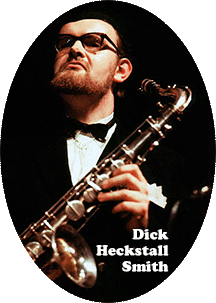
Now with a hit single in the charts, Locomotive were again booked into Abbey Road - this time to record an album. As previously, Gus Dudgeon produced the sessions. He would later go on to make hit records with Elton John.
Top session horn players Dick Heckstall-Smith, Henry Lowther, and Chris Mercer were used in recording the Locomotive album and by January of 1969 the first new Locomotive single from the sessions was issued. 'Mr. Armageddan' was a Norman Haines original and a brilliant piece of work (note the spelling "Armageddan" and "Armageddon" were both used on the group's records and publicity material).
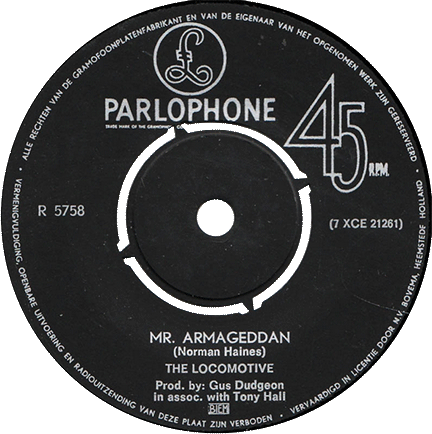
Mr Armageddan featured the prominent use of Norman's Hammond organ along with a heavy horn-driven chorus but it was in a strong psychedelic/progressive vein - much unlike the band's previous soul/ska-based singles.
The group announced their new "progressive" direction and the record drew acclaim from most reviewers but it sold poorly. Fans of the new progressive rock music considered Locomotive to be a "pop" act while those who enjoyed 'Rudi's In Love' were not interested in the band's new image or sound.
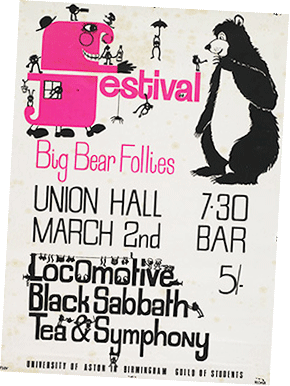
Another Locomotive single titled 'I'm Never Gonna Let You Go' was issued in 1969. It was a cover of a "Question Mark and The Mysterians" song, but while it was more pop oriented, the record missed the charts. Although Locomotive's album had been completed for some time, Parlophone continually delayed its release to the dismay of the band.
During 1969, the music scene was again changing rapidly with heavier guitar-oriented groups like Deep Purple and Led Zeppelin making the biggest impact.
Norman Haines left Locomotive before the end of the year and was reportedly offered a job to play keyboards in the recently formed Black Sabbath (also managed by Jim Simpson). Although he declined the offer, Black Sabbath did record one of his compositions titled 'When I Come Down' but the track was never released.
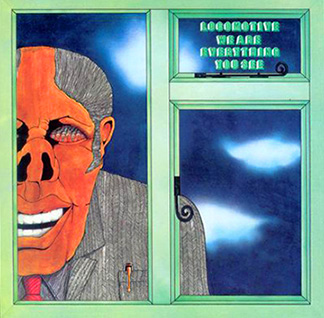
"It was just dumped!"
On February 1st 1970, the Locomotive album titled "We Are Everything You See" at last reached the record shops. It was a great mix of psychedelic/jazz based compositions with the recording and musicianship all done to a very high standard. Unfortunately, this album did not sell well and was largely ignored so never really got the recognition it deserved.
Years later, Tony Hall said of the Locomotive album; "No marketing. No promotion. Nothing. It was just dumped!". The LP's poor sales at the time helped increase its status as a rare record collector's item many years later. To see an in depth review of this album on the Brum Beat Reviews page, click HERE.
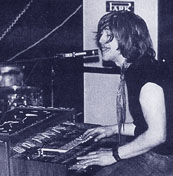
Norman Haines formed a band called "Sacrifice" with whom he recorded another (now rare) album in 1970. They later became known as "The Norman Haines Band". Norman still lives in the Birmingham area to this day and can occasionally be found performing in local line-ups.
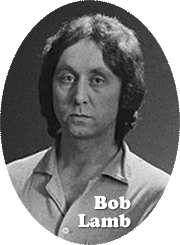
Remaining Locomotive members Mick Hincks and Bob Lamb along with replacements John Caswell and Keith Millar recorded a final Locomotive single titled 'Roll Over Mary' before re-naming the band "The Dog That Bit People" under which name they released a single and album in 1971. Hinks and Lamb were also involved with Brum band Tea & Symphony and participated in recording their 1970 album titled "Jo Sago".
Bob Lamb went on to join "The Steve Gibbons Band" (see Idle Race) who had success with their chart hit 'Tulane' in 1976 and toured America extensively. Bob also produced the first hit single for the internationally successful Birmingham reggae/pop group "UB40" at his Dudley home studio in 1979.
Locomotive 1960s Record Releases
Singles:
Albums:
To see a review of Locomotive's remastered We Are Everything You See album on CD, click HERE.
If you would like to contribute to this page, please e-mail john@brumbeat.net